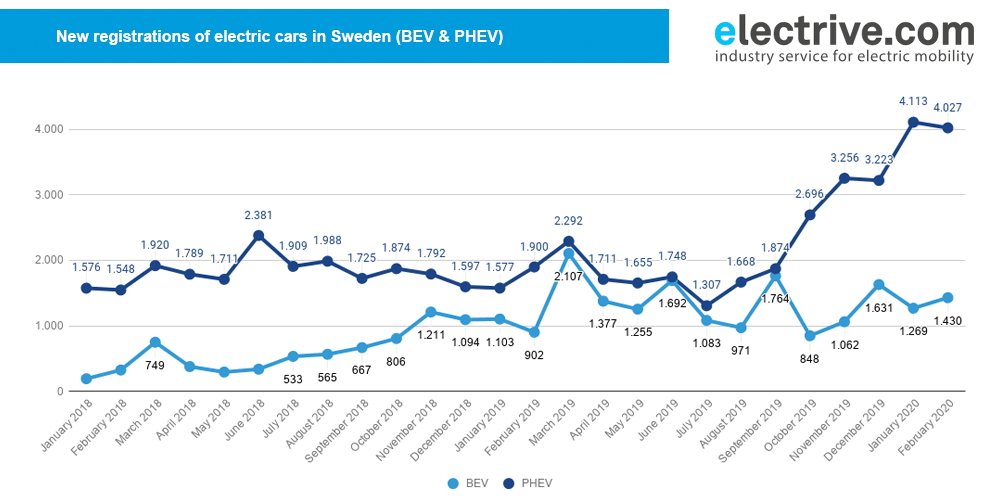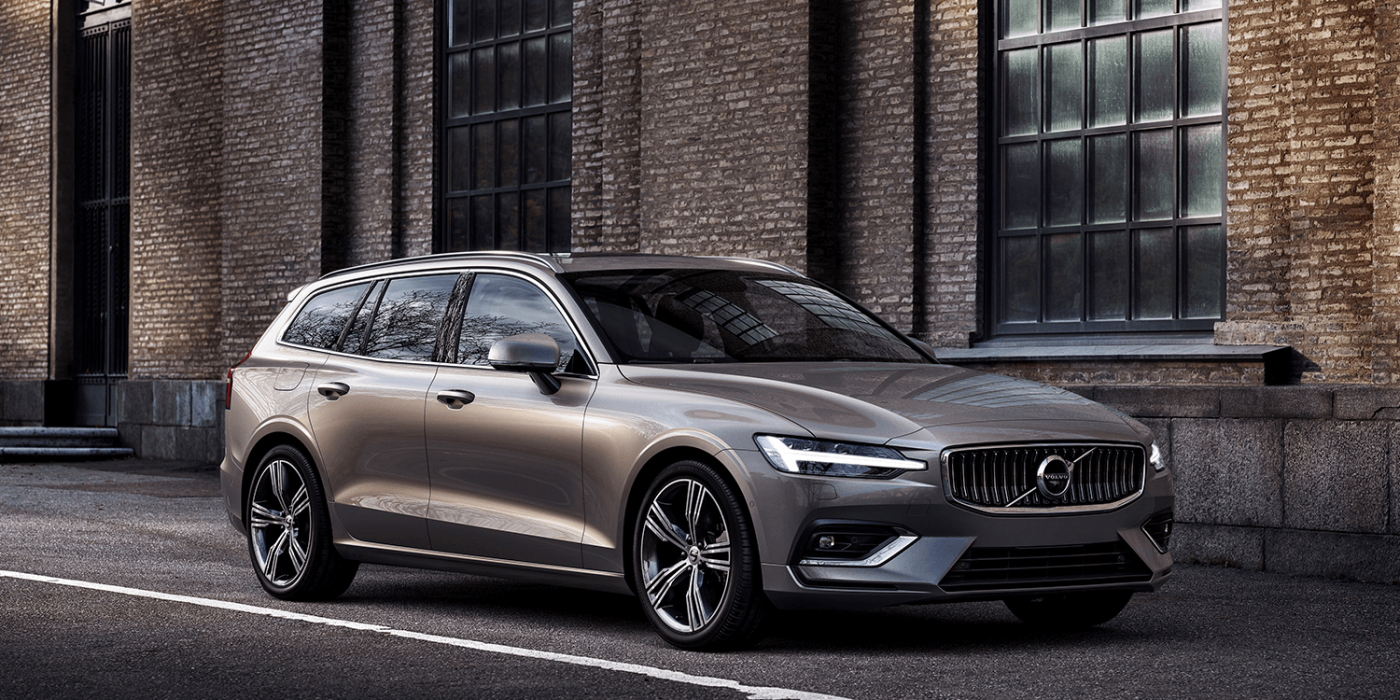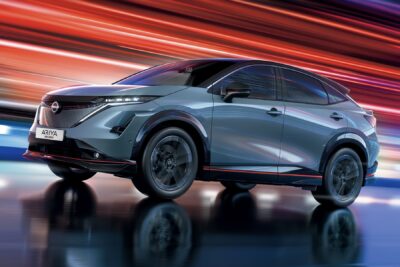Sweden: marketshare for plug-in vehicles nears 25%
In Sweden, electric cars and plug-in hybrids achieved a market share of 24.3 per cent in February. The background to the new car registration boom is primarily a change in the Swedish subsidy system, which came into force at the turn of the year.
Around 6.4 per cent of all Swedish new cars in February 2020 were BEV (1,430 registrations), and about 18 per cent were plug-in hybrids (4,027 listings). The increase compared to February 2019 was around 59 per cent for electric cars and 112 per cent for PHEVs.
In January this year, 7.1 per cent of new cars were battery electric passenger cars (1,269 new registrations), and 23.1 per cent were plug-in hybrids (4,113 new listings). The increase compared to January 2019 was 15 per cent for BEVs and 160.8 per cent for PHEVs.

Overall, however, the Swedish car market declined by 5.5 per cent year-on-year in February with 22,489 new registrations, according to a statement by the state agency Statistics Sweden. Both diesel and petrol engines lost significant market share.
The three most popular BEV models in February were the Kia e-Niro, the Audi e-tron and the Renault Zoe. Among the bestselling PHEV models were the Volvo S60/V60, the Kia Optima and the Kia Niro.
The electrification boom (especially for PHEVs) is due to the Swedish ‘bonus-malus’ EV subsidy system. Although this system has been in effect since 2018, a change that came into force on 1 January 2020 means that CO2 emissions are measured according to the WLTP cycle. As a result, consumption and CO2 values are on average 20 per cent higher than in the NEDC standard previously used, making ICEs more expensive (malus). Clean Technica calculates that a diesel car with a CO2 emission of 122 grams per kilometre (which is the Swedish average for 2018) costs 425 euros in taxes per year. Above the 140 g/km limit, the costs continue to rise: a sports car with 225 g/km would cost as much as 1,250 euros per year.
In return, however, new (electrified) cars with CO2 emissions of less than 70 g/km will receive a bonus of up to €5,700 (graduated in various stages between 0 and 70 grams). So while some vehicles have moved into a different category, PHEVs especially continue to benefit from the lower rates.
>> With reporting by Daniel Bönnighausen & Nora Manthey.





0 Comments